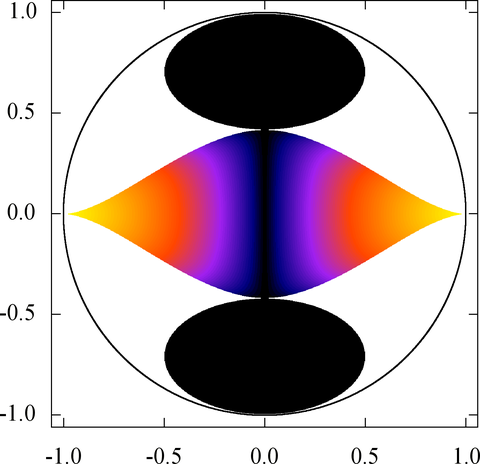Topological and unconventional superconductors
A hot topic that has recently come to the forefront of physics concerns topological insulators and superconductors. In such compounds, the single-particle Hamiltonian has non-trivial topological properties in reciprocal space. In simple cases the spectrum has an energy gap in the bulk but is gapless at the edge or surface. The topological origin makes the gapless surface states very robust against disorder. The quantum Hall effect is an example but it has only recently been realized that the concepts are much more general and, in particular, carriers over to superconducting compounds.
We are specifically interested in superconductors with nodes (i.e., zeros in reciprocal space) of the energy gap that nevertheless have non-trivial topological invariants. We study states at their surfaces, which include perfectly flat energy bands at the Fermi energy formed by Majorana particles. Majorana particles are fermions which are their own antiparticles. We also study effects arising from the interaction between Majorana modes.
Another project concerns superconducting states that break time-reversal symmetry. We find that, if multiple bands contribute to the superconducting pairing, nodes generically take the form of two-dimensional Fermi surfaces. This is rather surprising since such Fermi surfaces are normally considered to be the hallmark of a normal metal.

